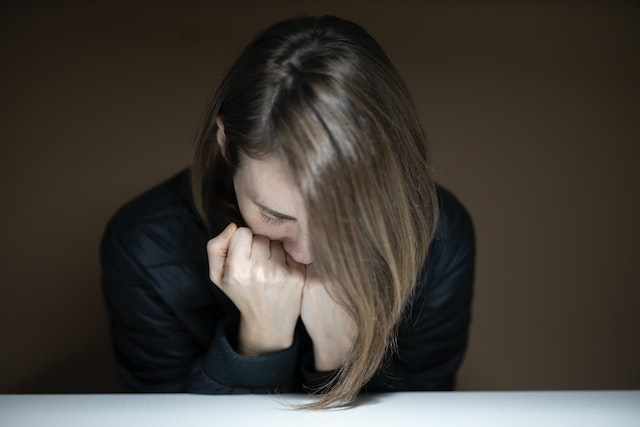
What Are Common Symptoms of Drug Withdrawal, And How to Cope?

Drug withdrawal, also known as detox, is the process your body goes through when you stop using drugs. Drugs are highly addictive substances that cause chemical reactions within your brain and body.
Therefore, when you decide to stop using them, your body doesn’t know how to react, resulting in painful psychological and physical symptoms. The degree and severity of withdrawal symptoms will vary depending on what types of drugs you are taking. Symptoms will also vary depending on how long you’ve been addicted to the drug in question and how high your tolerance has become.
In general, however, people who have been using stronger drugs for an extended period and have built up a high tolerance will experience the worst withdrawal symptoms. While withdrawal is painful and uncomfortable, it’s a necessary step if you want to overcome your drug addiction and retake control of your life.
This article will tell you what to expect during the withdrawal process based on the type of drug you have been using. We’ll also look at coping with these symptoms and the best way to overcome your addiction permanently.
Table of Contents:
Table of Contents:
Alcohol withdrawal symptoms and process
Alcohol addiction is one of the most common forms of addiction in the United States and worldwide.
Many people develop alcoholism over time due to repeated and increasing levels of social drinking. Others turn to alcohol to cope with physical or emotional pain.
Here are some physical and psychological symptoms you may experience when you decide to stop using alcohol after forming an addiction.
Symptoms typically start within 6 to 8 hours from the last time you consumed alcohol and can last several days.
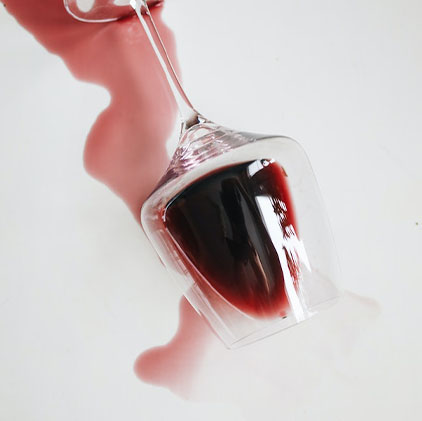
Physical symptoms
- Shaky hands and tremors
- Nervous sweats
- Body aches and pains
- Headaches
- Vomiting
- Nausea
- Diarrhea
- Elevated blood pressure
- Fever
- Seizures
Psychological symptoms
- Confusion and difficulty processing thoughts
- Hallucinations
- Extreme irritability
- Temporary personality shifts
- Insomnia and trouble sleeping
- Feeling anxious or stressed
- Paranoia
- Disorientation
The severity of your symptoms will depend on how long you’ve been drinking alcohol and your tolerance. Some people will experience very few symptoms, while others will relapse because the symptoms are unbearable. Additionally, symptoms typically worsen after several days before suddenly subsiding.
Heroin and opiate withdrawal symptoms and process
When it comes to drug withdrawal, detoxing from heroin and opiates is especially painful and difficult.
Withdrawing from these substances often results in severe symptoms and is more difficult than detoxing from most other addictive substances.
Despite how awful heroin and opiate withdrawal symptoms are, they typically subside after several days or a week, with milder symptoms lasting several weeks.
You may start feeling withdrawal symptoms 8 to 24 hours after your last use.
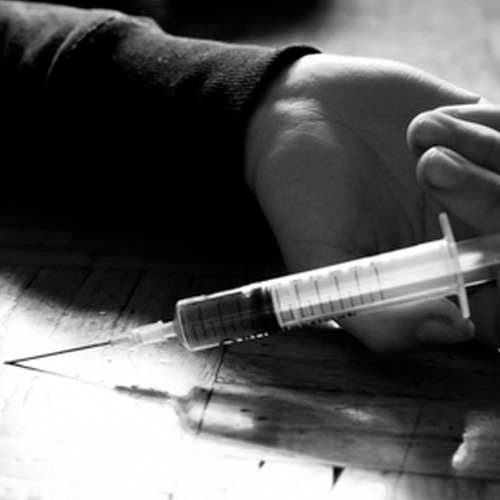
Physical symptoms
- Nausea
- Vomiting
- Diarrhea
- Body aches and pains
- Intermittent fevers
- Chills
- Brain zaps
- Muscle cramps
- Watery discharges from the nose and eyes
- Abdominal cramps
- Goosebumps
- Dilated pupils
- Heavy sweating
Psychological symptoms
- Insomnia
- Anxiety and stress
- Agitation and irritability
- Confusion
- Hallucinations
- Excessive yawning
As with alcohol, the severity of your symptoms depends on your tolerance and how long you have abused opioids. In general, however, everyone will experience symptoms regardless of their usage history when detoxing from heroin and other opiates.
Marijuana withdrawal symptoms and process
Compared to the withdrawal symptoms of other drugs, marijuana withdrawal symptoms are fairly minor. Part of the reason that marijuana withdrawal is easier is because of how it affects the brain and the fact that it is not considered as addictive as other drugs.
However, just because symptoms are not as severe doesn’t mean it is easy to withdraw from marijuana.
Marijuana withdrawal symptoms typically start within one to three days of when you last used cannabis. Symptoms will last up to one week, with lingering withdrawal symptoms lasting much longer.
While these symptoms may not be as severe as with harder drugs, they are likely to be present nonetheless.
Having a strong support system around you can help prevent you from giving in to your cravings and resuming marijuana use.

Physical symptoms
- Headaches
- Changes in appetite or loss of appetite
- Intermittent sweats
- Night sweats
- Chills
- Body aches and pains
- Indigestion and nausea
- Vomiting and diarrhea
- Fluctuations in weight
Psychological symptoms
- Extreme cravings for marijuana
- Anxiety
- Stress
- Depression
- Irritability
- A short fuse
- Insomnia and sleep issues
- Sudden mood swings and changes
Benzodiazepine withdrawal symptoms and process
More commonly known as ‘benzos’, benzodiazepines are a class of prescription drugs typically used to treat anxiety, depression, and other mental health disorders.
Because of the conditions they treat, it can be easy to get addicted to benzodiazepines. Worry about your underlying condition can unintentionally lead you to a total dependency on benzos.
Because of the conditions that benzos treat, the withdrawal process can be quite difficult. Whether your addiction stems from misusing benzos or simply using them too long, here are some symptoms you may experience.
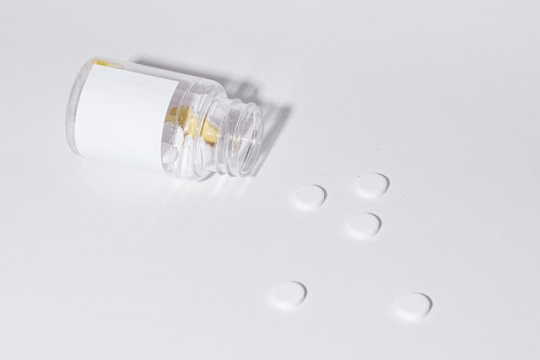
Physical symptoms
- Body aches and pains
- Fevers
- Body chills
- Vomiting
- Nausea
- Stomach pains and indigestion
- Muscle cramps
- Stiffness
- Tremors
- Headaches
- Irregular heartbeat
Psychological symptoms
- Insomnia and sleep difficulties
- Hallucinations and delusions
- Extreme irritability
- Anxiety
- Stress
- Occasional panic attacks
- Fuzzy memory
- Confusion
Benzodiazepine withdrawal symptoms can start two to five days after your first missed use. This timeline will depend on the types of benzos you were using and how often you used them. Acute symptoms may last for two to five days, while long-lasting symptoms may go on for up to a month.
Cocaine withdrawal symptoms and process
Cocaine is one of the oldest, most widely abused, and most addictive drugs in the world. As such, the withdrawal process is brutal in the degree of difficulty and severity of symptoms.
The reason that cocaine is so addictive is that it produces intense feelings of euphoria and happiness. In constant pursuit of these feelings, people repeatedly turn to cocaine, often in increasing amounts.
Cocaine withdrawal symptoms are unique in that they often do not feature the vomiting and nausea that are typical of other drugs.
However, while the physical symptoms may not be too severe, the psychological symptoms are particularly challenging.
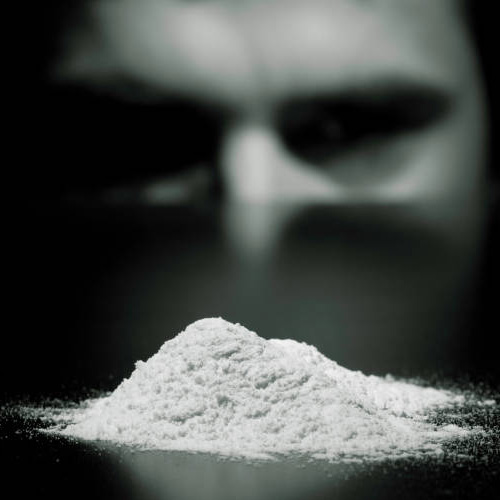
Physical symptoms
- Fatigue and sleepiness
- Increase of appetite
- Lethargy
- Occasional body aches and discomfort
- Headaches
- Delayed or slow movements
- Intense craving for cocaine
Psychological symptoms
- Extreme agitation
- Depression
- Anxiety
- Stress
- Mood swings
- Feelings of restlessness
- Paranoia
- Vivid nightmares
- Confusion
- Insomnia
- Lack of concentration
The physical symptoms of cocaine withdrawal less often lead to relapse. Instead, the intense craving for the euphoria you experience when you take cocaine and the psychological symptoms you go through during withdrawal can cause you to resume use. For those reasons, it is extremely difficult to withdraw from cocaine without medical intervention.
How to cope with and overcome drug addiction
Now that you know the symptoms associated with drug withdrawal and understand why overcoming an addiction can be so difficult, let’s look at how to cope with and overcome your drug addiction safely.
Successfully overcoming addiction involves lifestyle changes, emotional support, and medical assistance. While you can make some of these changes on your own, many are easier and more beneficial when you enlist professional detox assistance.
Lifestyle tips
Overcoming a drug addiction can be as much a physical battle as a mental oneas you try to convince your brain and body that you do not need drugs. A big part of winning that battle is making necessary lifestyle changes and adjustments.
Diet
In addition to exercise, your diet will play a massive factor in addiction recovery. A healthy, well-balanced diet will help you feel better and healthier, improving your body image and attitude.
A well-balanced diet is also essential in helping your body produce certain hormones, chemicals, vitamins, and minerals that can help you prevent relapse. Carbs, protein, and veggies should be at the top of your list, while fats, sugar, and fried food should be at the bottom.
Exercise
Exercise is extremely important throughout the recovery process for several reasons. First, exercise will help you regain the muscle and cardio health you may have lost during your addiction.
Exercise is also a great, natural way to cope with stress, anxiety, and depression. The more you exercise, the better you will feel and the less likely you are to relapse. Exercise doesn’t have to be extreme; something as simple as daily walks can make a big difference.
Sleep
The withdrawal process will take a devastating toll on your body. While hydration and good food will aid your recovery, you’ll need lots of rest and sleep to make a full one. Sleep can be difficult during withdrawal, depending on the type of drug you used, and you may need sleep supplements to find rest. It’s also vital to get back on a regular sleep schedule post-withdrawal.
Hydration
Drinking lots of water and electrolytes is important during recovery but also extra important during drug withdrawal. As your body detoxifies, you may sweat, vomit, have diarrhea, and lose lots of body fluids.
You need to replenish these fluids in order to make a safe recovery.
Mental health tips
Lifestyle changes will help you get back on track physically and emotionally, but you may also need to recover mentally if you hope to avoid relapsing. Here are a few mental health tips to assist you.
Seek counseling
Most people find it impossible to make a lasting recovery from drugs and alcohol without seeking professional counseling. It’s important that you can talk about and work through your feelings during recovery, and the best way to do that is with a professional counselor. Counseling will also help you understand that what you’re feeling is normal and nothing to be ashamed of. Your counselor can also help you learn to identify drug use triggers and develop healthy coping mechanisms to help prevent relapse.

Practice relaxation techniques
During your recovery, there will undoubtedly be times when you will feel stressed, anxious, and overwhelmed. When you were using drugs, you would turn to them to cope with these uncomfortable feelings. However, now that you are drug-free, you will need to find other ways to deal with stress, anxiety, and depression.
While counseling can help, it’s important to find ways to help yourself in situations where you don’t have access to your counselor. Yoga, meditation, and other relaxation techniques are great options. Playing a game, creating art, cooking, and anything else you enjoy can also help.

Surround yourself with people you trust
Finally, it’s important to surround yourself with people you know, love, and trust while recovering from addiction.
These people will be instrumental in providing support during your recovery and can help keep you accountable to prevent relapse.
Having a solid support system can also offer encouragement, motivation, and a sense of belonging, which are all crucial components in maintaining long-term sobriety.

Medication-assisted detox
While it might seem counter-intuitive to use drugs and medications to get away from drugs, it’s actually just the opposite. Medication-assisted detox is quickly becoming the safest and most effective drug detoxification method. The drugs used during medication-assisted detox are administered by professionals and specifically chosen to keep you from getting addicted to them.
Through a combination of lifestyle changes, mental health adjustments, and medication-assisted treatment, you’re much more likely to make a lasting recovery. While you can make lifestyle and mental health changes yourself, the only way to receive medication-assisted treatment is with professional detox assistance. You can receive professional assistance at a rehab facility or in the comfort of your home.
Therefore, if you are serious about wanting to overcome drug addiction and make a lasting recovery, you should consider professional detox. Professional detox may include medication-assisted detox, counseling and coaching, and a valuable support system as you recover. Your chances of total and lasting recovery are much higher when you enlist professional detoxification services instead of going it alone.
The most effective way to overcome addiction and avoid relapse
While overcoming detox alone is a common withdrawal option because of how cheap it is, this method often proves unsuccessful. Without healthcare professionals to assist you during detox, the process is often too painful, and users rarely make it through.
Those who do make it through withdrawal on their own find it extremely difficult to stay away from drugs long-term without a good support system.
Medication-assisted detox can help wean you off whatever drug you are addicted to. This will ease your physical and psychological symptoms, making withdrawal easier.
You will continue taking these medications in decreasing doses after withdrawal to reduce your drug cravings safely. This tapering method can significantly reduce the chances of relapse and supports a full, permanent recovery.
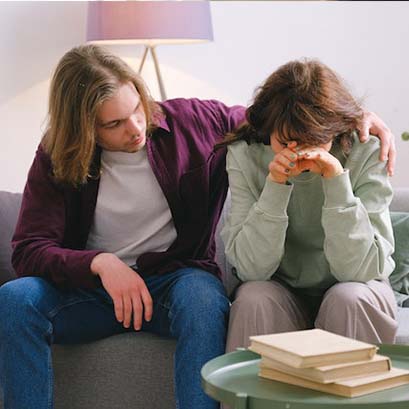
Detox Safely At Home With Elite Home Detox
With Elite Home Detox, you will be assigned a care coordinator to help keep you on-track to support your recovery. Once a custom rehabilitation plan has been developed between you and your expert team, one of our team members will come to your home and stay with you as you detox discreetly in the comfort of your own home.
Once detox is complete, we will work with you to create a practical and effective aftercare plan complete with ongoing recovery support. We can also help counsel friends and family on how they can best support you in taking this next step. We’re here and ready to help. Reach out to us for a custom consultation today!


